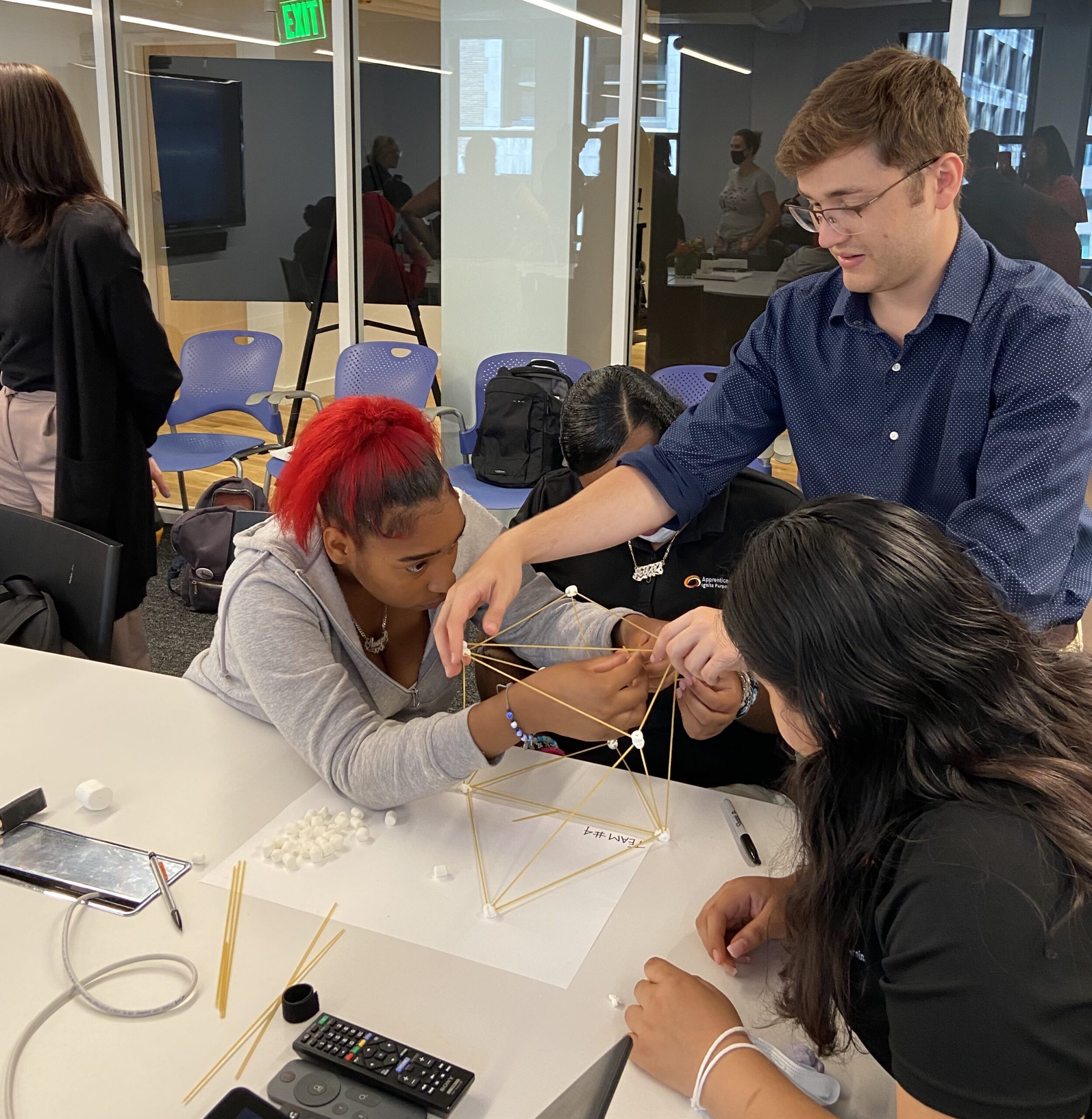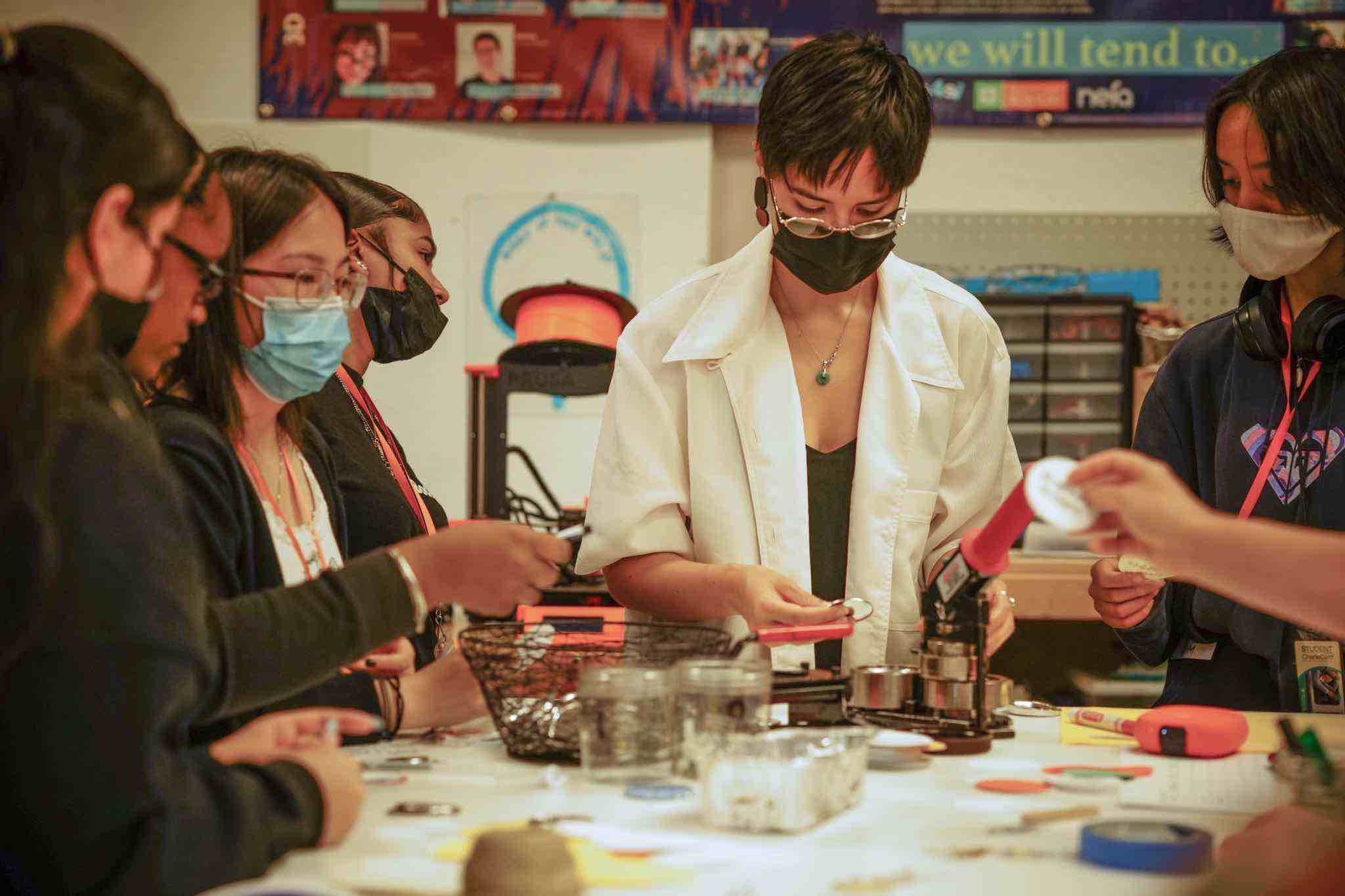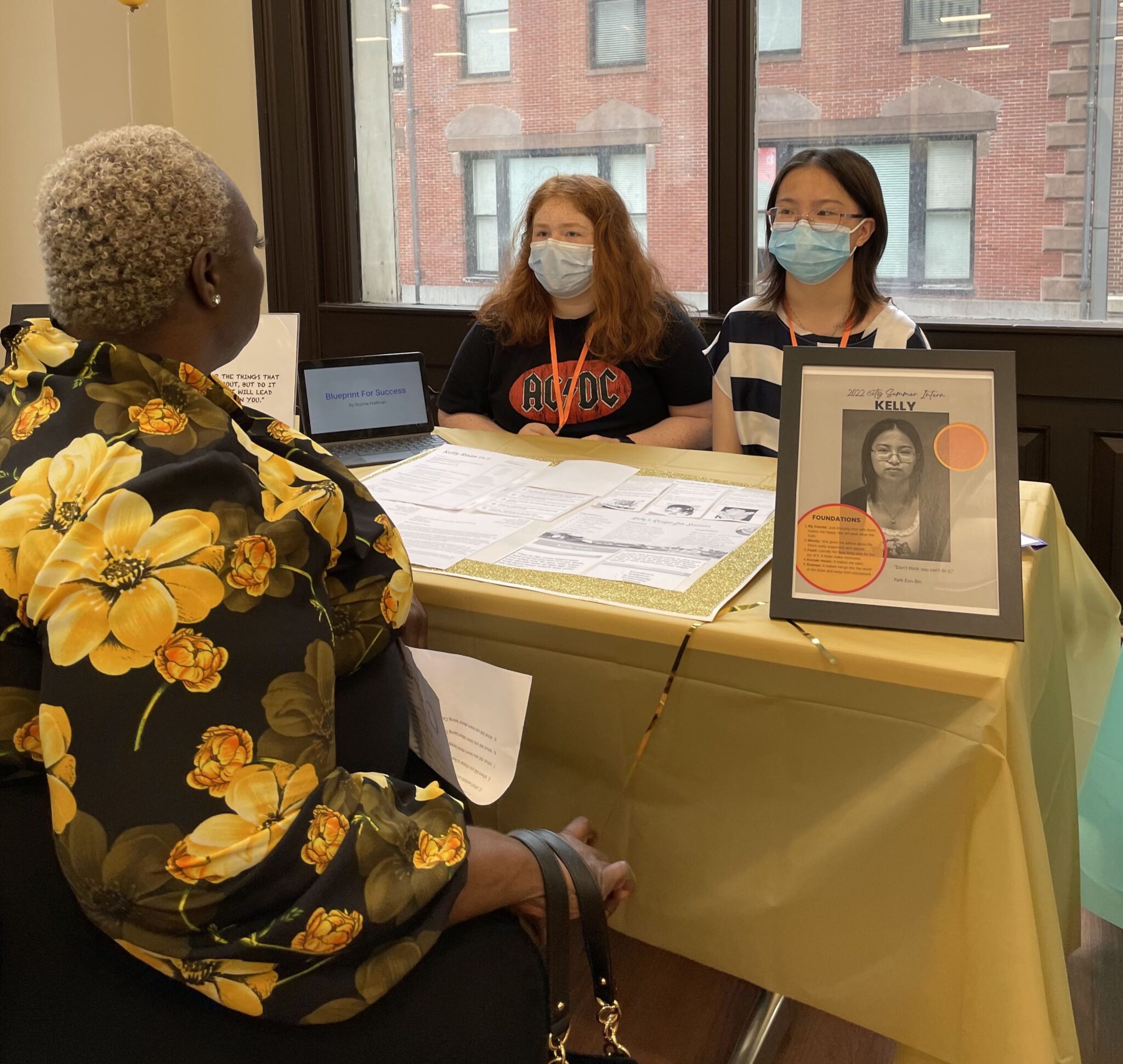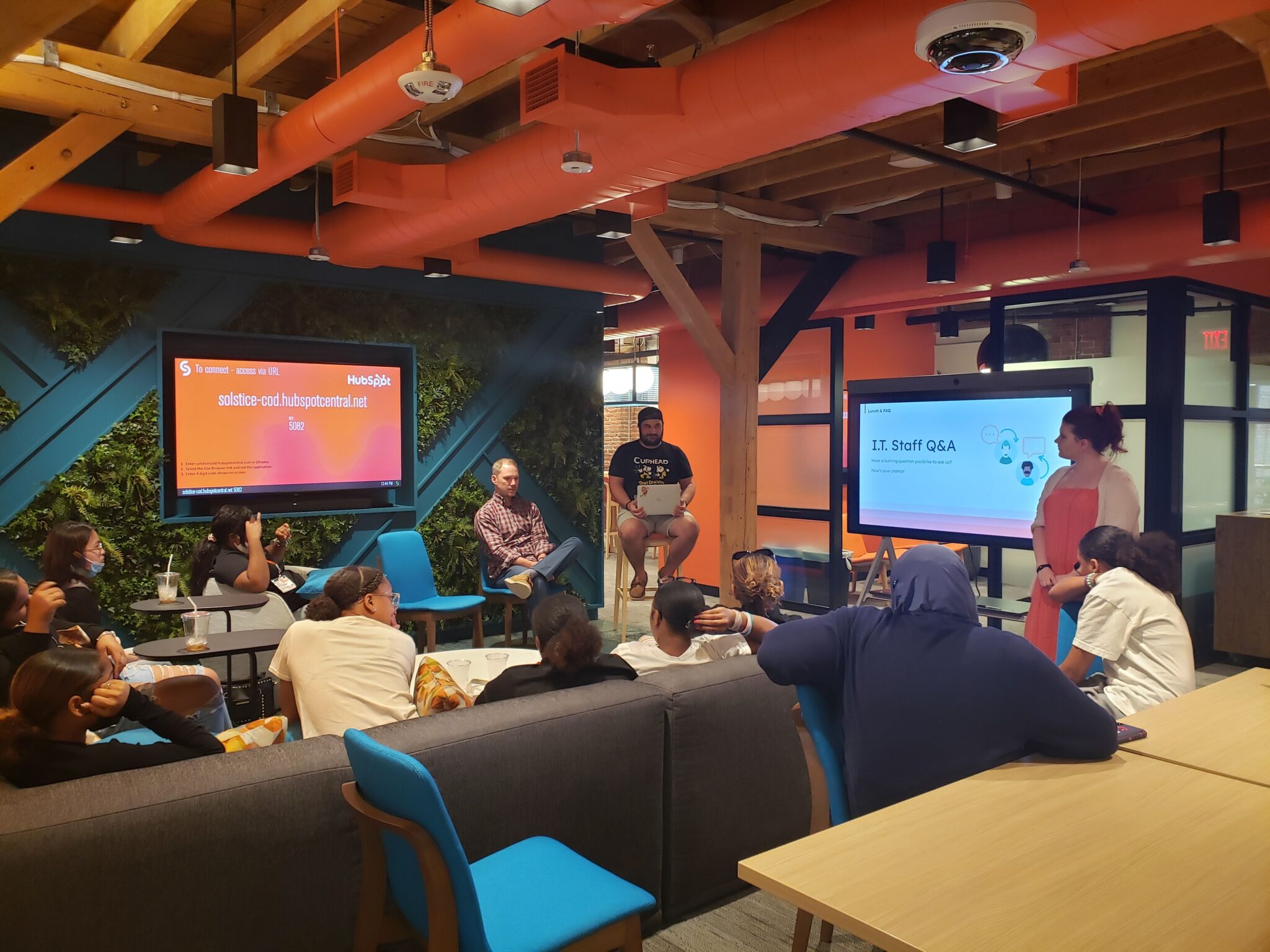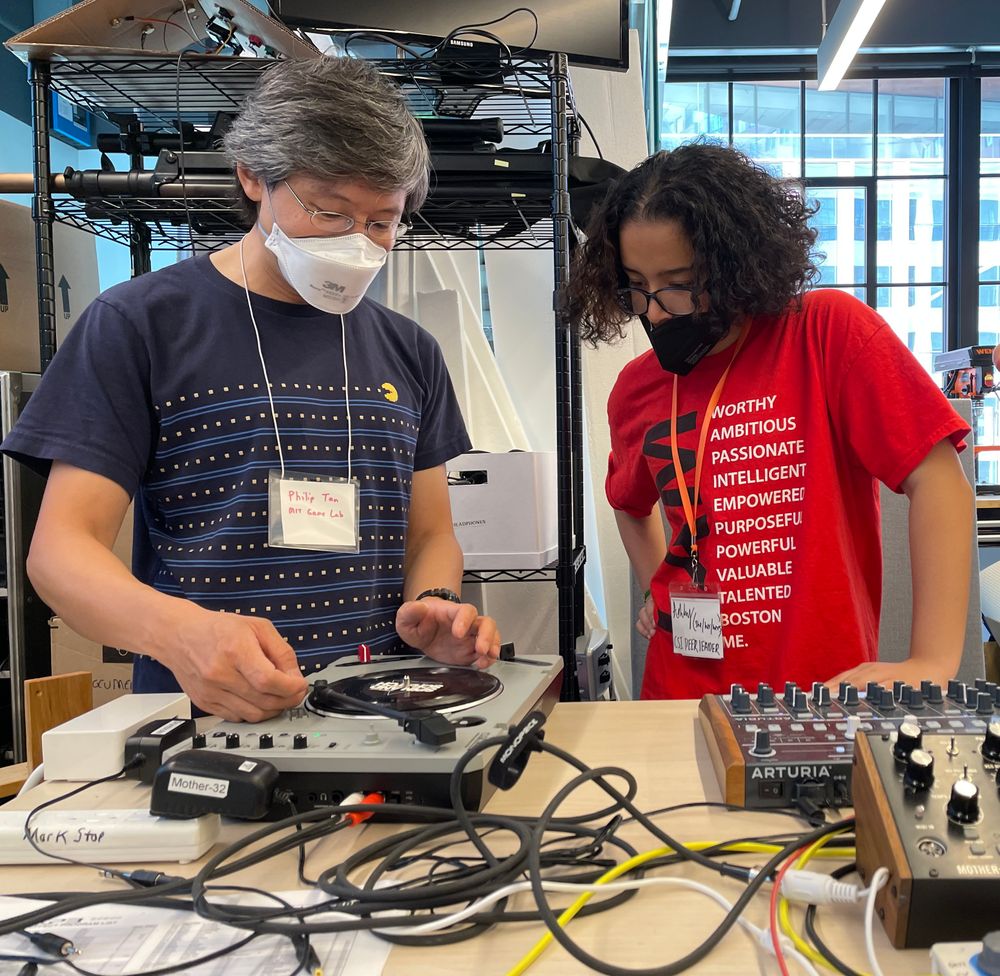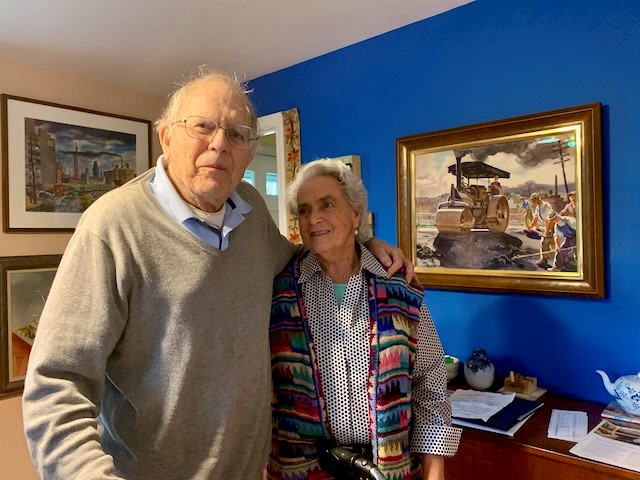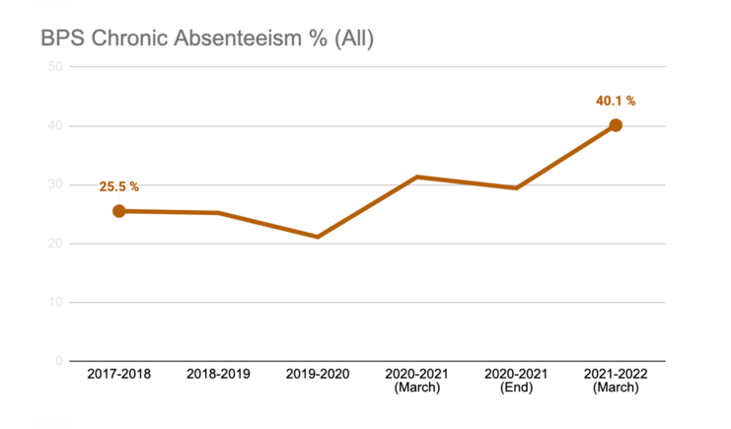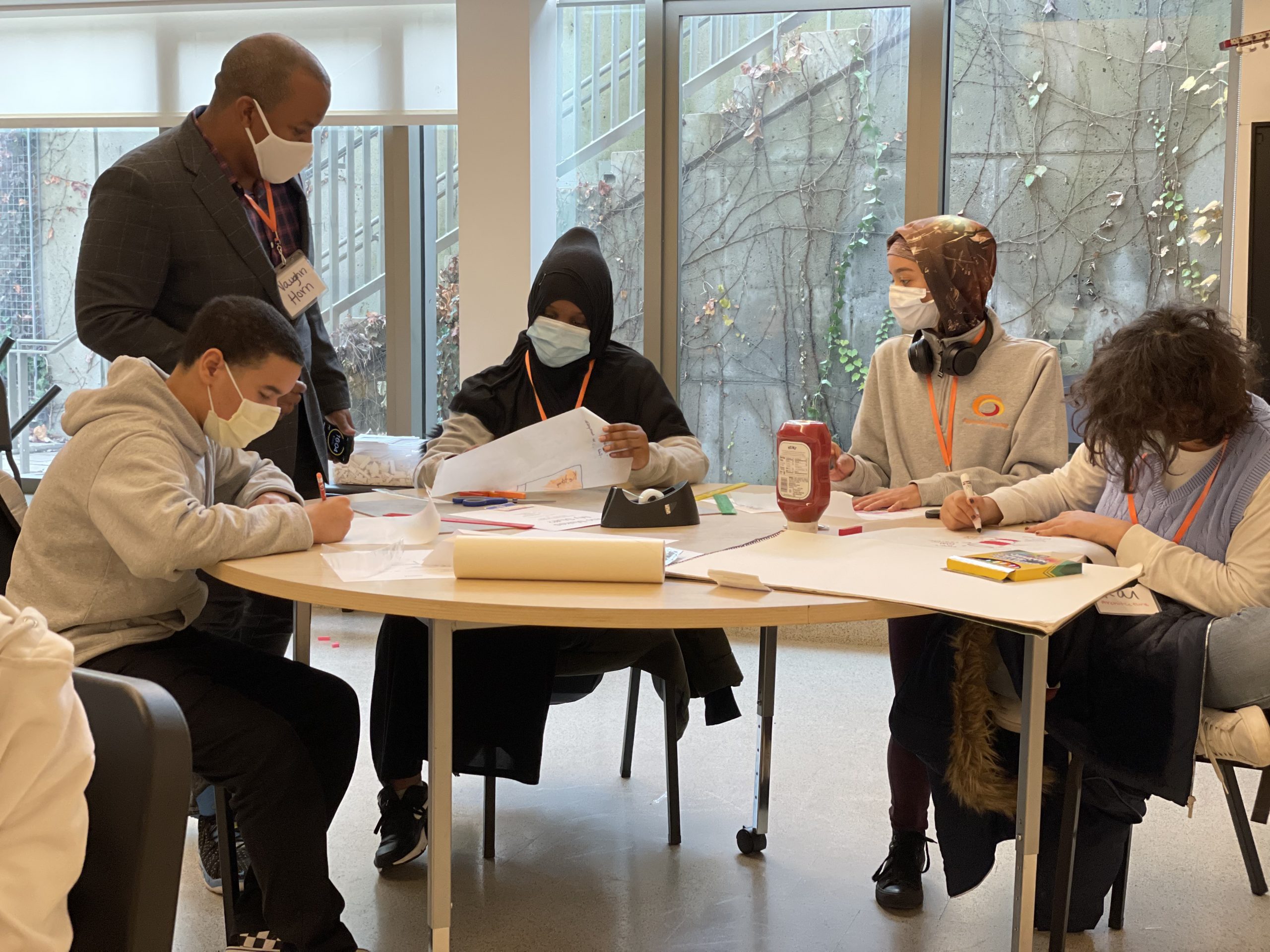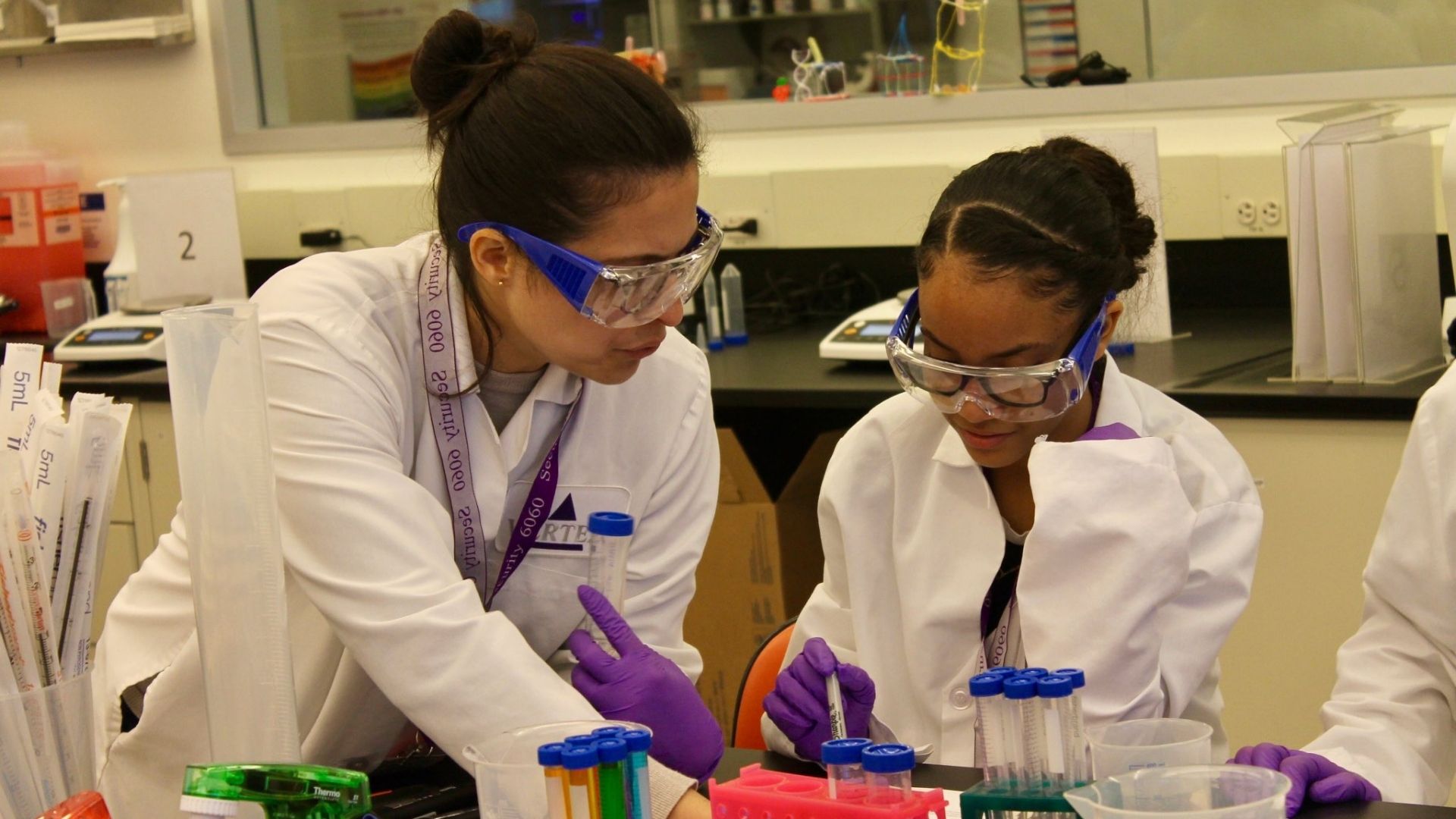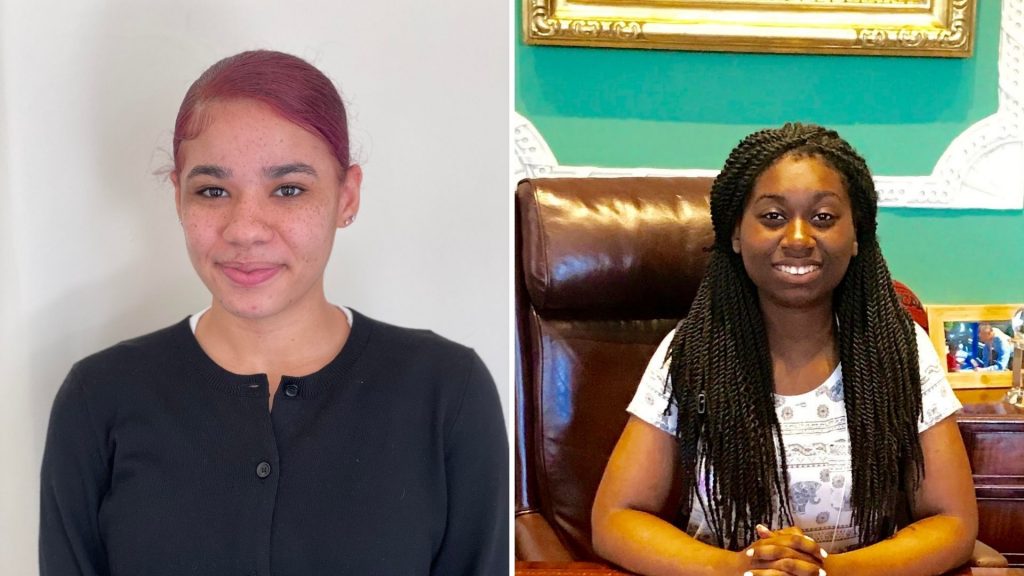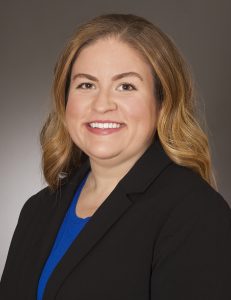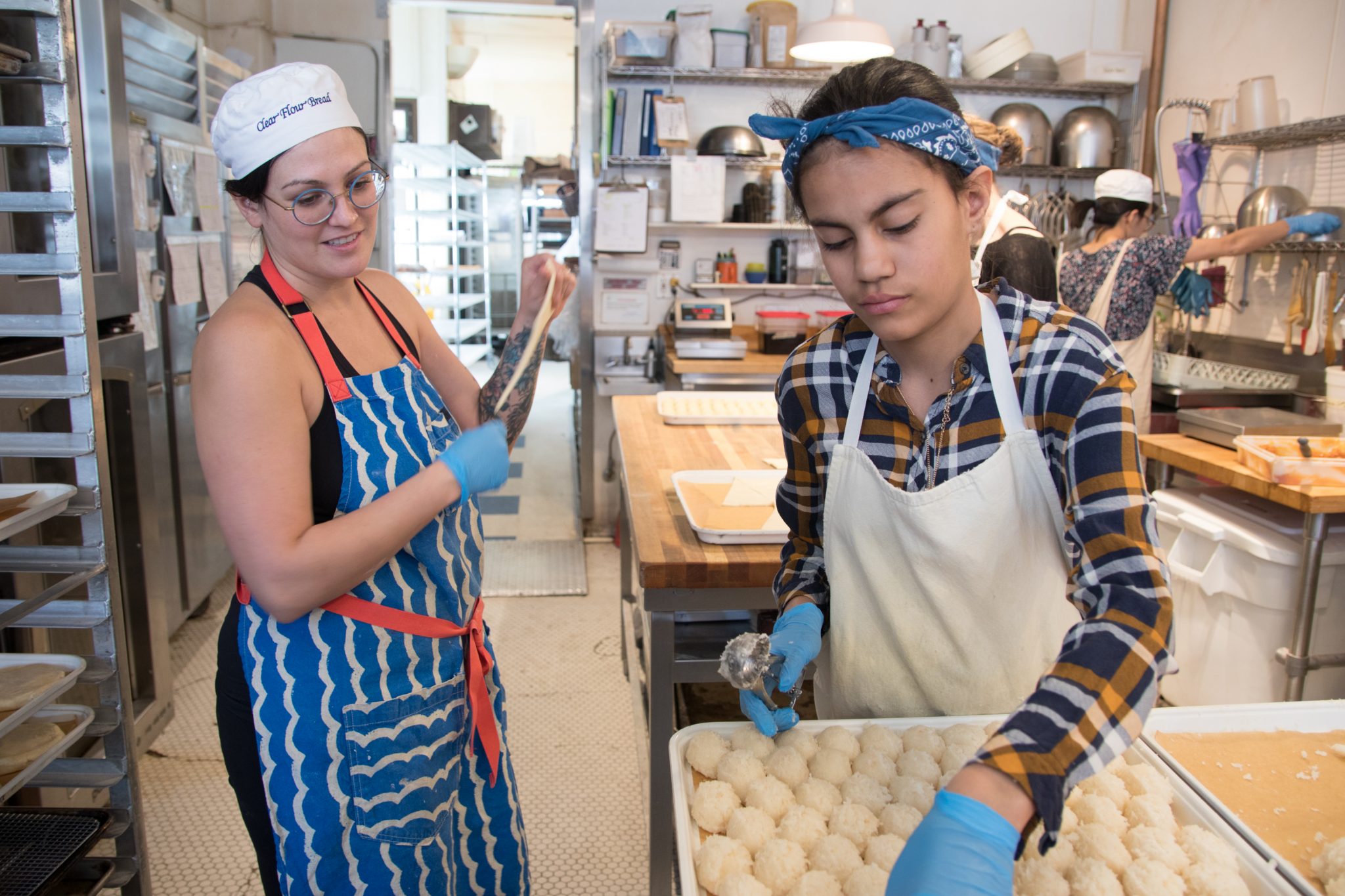Apprentice Learning provides real-world work experiences for eighth graders, exposing them to a myriad of fulfilling careers. At such a critical period in a young person’s life, these are the opportunities that ignite growth and change and spark passions and interests. We work alongside business partners who support us in exposing young people to as many careers as possible in the hope of sparking an interest in careers that have the potential to shape their own future workforce.
Apprentice Learning sat down recently with Tyler Cosma from Stantec to talk about their experience as a worksite partner during our City Summer Internship, a program for girls focused on careers in STEAM.
Tell us about Stantec and your role.
Stantec is a global consulting firm. We are designers, engineers, scientists, and project managers. I work out of the Burlington, Massachusetts office where we have a bunch of different teams that mostly focus on water, roadways, bridges, or buildings. Our Boston office has the same groups, plus architecture and community development. I am a civil engineer in training, and I work in the water group. I work on drinking water conveyance and sewer separation projects in the Boston area.
What prompted Stantec to work with Apprentice Learning as a worksite partner?
This is our second year participating, but the first year I became involved. In terms of how we got started, we have an Inclusion and Diversity Committee that’s part of the water team. It was formed a few years ago at the start of the pandemic in response to all the social justice movements that were going on at the time. A lot of employees were frustrated and distracted about all the things going on in the world, so we really wanted to do something about it. We formed this committee and focused on a bunch of different topics and issues. But the goal, ultimately, is to foster a culture of inclusion at the office. So, partnering with Apprentice Learning was this perfect opportunity to take action and give back to the communities that we work with. We wanted to work with Apprentice Learning to increase exposure and show how fun and rewarding engineering can be. Apprentice Learning was perfect in providing that framework for us.
Describe your experience with the program?
First of all, working with Apprentice Learning was absolutely amazing! And again, this is my first time planning something like this, so I didn’t really know what to expect. There was an orientation that Apprentice Learning did and that was really great because it refocused us a bit. We were just worried about getting the content to the students, but there’s some other stuff that you don’t really think about unless someone says it to you. Like, remember, these are 8th graders and try to think about how you were when you were that age. And all of that stuff was really helpful in fine tuning our event.
I planned for a 3-hour event, so I separated the day into 30 minutes blocks. It started with an office tour, then we did a couple of slides introducing Stantec and engineering, then we did an architecture activity, then a structural engineering activity, then a transportation activity, and, finally, we did a small water presentation.
I had a bunch of [Stantec employee] volunteers help me out with these activities, and I got so much positive feedback from them!
Tell us what you heard?
There were two main things that I heard and that was that everybody loved working with the student apprentices. They felt like it was incredibly rewarding because it provided the students with experiences that they’d be able to bring with them into their future careers. Another thing was that after working with the students that day, everyone really felt a renewed sense of importance and appreciation for the work that we do everyday. It really puts everything into perspective when you take what you do and try to teach it to someone younger. And it was also great just to be able to learn what each of us do. Sometimes we’re kind of siloed into our own teams and we got to kind of just listen in on each other’s presentations, and I think it just brought us together.
Do you have any advice to other companies who might be thinking about being worksite partners?
I think that you can’t deny how rewarding it is to give back. If you just spend a few hours with these students, you’re just going to feel so much better and you’re probably going to make a difference in someone’s life. That’s invaluable.
Anything else before we close?
I loved working with Apprentice Learning, and I definitely want to work with them in the future. I think encouraging more women into the STEAM fields is really important, and I look forward to doing more!
Interested in becoming a worksite partner? Click here to learn more.

